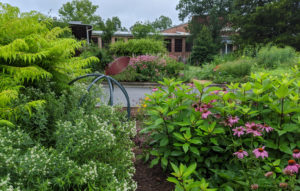
June Blooms in Pollinator Paradise
Pollinator Paradise is a Demonstration Garden created by the North Carolina Cooperative Extension, Chatham County Center. Agriculture Agent Debbie …



El inglés es el idioma de control de esta página. En la medida en que haya algún conflicto entre la traducción al inglés y la traducción, el inglés prevalece.
Al hacer clic en el enlace de traducción se activa un servicio de traducción gratuito para convertir la página al español. Al igual que con cualquier traducción por Internet, la conversión no es sensible al contexto y puede que no traduzca el texto en su significado original. NC State Extension no garantiza la exactitud del texto traducido. Por favor, tenga en cuenta que algunas aplicaciones y/o servicios pueden no funcionar como se espera cuando se traducen.
Inglês é o idioma de controle desta página. Na medida que haja algum conflito entre o texto original em Inglês e a tradução, o Inglês prevalece.
Ao clicar no link de tradução, um serviço gratuito de tradução será ativado para converter a página para o Português. Como em qualquer tradução pela internet, a conversão não é sensivel ao contexto e pode não ocorrer a tradução para o significado orginal. O serviço de Extensão da Carolina do Norte (NC State Extension) não garante a exatidão do texto traduzido. Por favor, observe que algumas funções ou serviços podem não funcionar como esperado após a tradução.
English is the controlling language of this page. To the extent there is any conflict between the English text and the translation, English controls.
Clicking on the translation link activates a free translation service to convert the page to Spanish. As with any Internet translation, the conversion is not context-sensitive and may not translate the text to its original meaning. NC State Extension does not guarantee the accuracy of the translated text. Please note that some applications and/or services may not function as expected when translated.
Collapse ▲
Pollinator Paradise is a Demonstration Garden created by the North Carolina Cooperative Extension, Chatham County Center. Agriculture Agent Debbie …
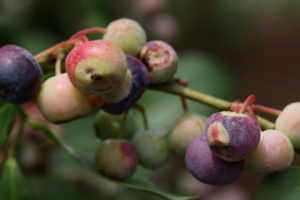
I recently visited a small Chatham County blueberry farm and found some of the bushes were infected with Exobasidium, …

The Environmental Protection Agency (EPA) recognized the Eastern Band of Cherokee Indians with the regional 2015 EPA Rain Catcher …
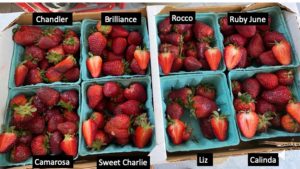
The NC State University Strawberry Breeding program has put all the yield data from our cultivar trials from 2015-2020 …
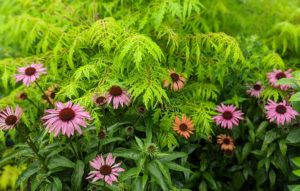
Pollinator Paradise is a Demonstration Garden created by the North Carolina Cooperative Extension, Chatham County Center. Agriculture Agent Debbie …
COVID-19 Farmers Update 06/05/2020 New today: Government Resources: USDA has announced crops that will be eligible for assistance through the Coronavirus Food …
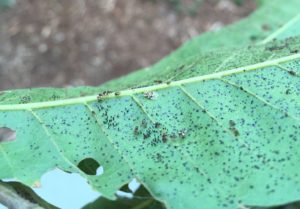
This week I have seen a couple species of lace bugs active on landscape plants. Yes, there are over …
How did COVID-19 impact NC Agriculture in April 2020? We have surveyed 157 farms and agritourism businesses and the …

For the past several weeks I have noticed damage to the leaves of my roses. Each year this happens and …

False oleander scale, Pseudaulacaspis cockerelli, is a tropical and subtropical pest originally from China. False oleander scale is common throughout …
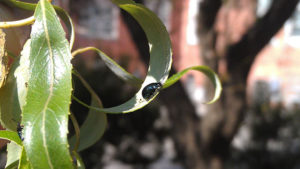
Imported willow leaf beetle (Plagiodera versicolor) are common on willows in landscapes and natural areas. Most of year adults and …
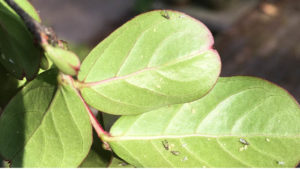
Crape myrtles are among the most commonly planted trees in the Southeast. The two main pests are crape myrtle …

As part of the Coronavirus Farm Assistance Program, the U.S. Department of Agriculture (USDA) announced that it will provide up …
COVID-19 Farmers Update 5/21/2020 News today: Phase 2 Reopening in NC: Section 6C of the Executive Order 141 moving NC to Phase …
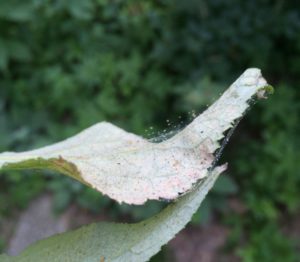
Twospotted spider mites are probably the most common spider mite species to damage ornamental plants, fruits, vegetables, and others. Twospotted …
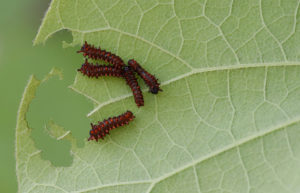
Pollinator Paradise is a Demonstration Garden created by the North Carolina Cooperative Extension, Chatham County Center. Agriculture Agent Debbie …
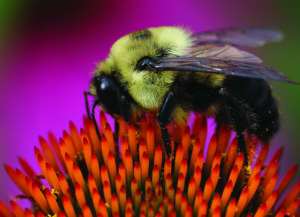
In honor of Citizen Science Month, the Chatham County Center of North Carolina Cooperative Extension conducted a webinar on …
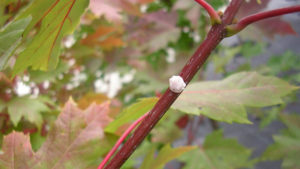
There are a couple species of wax scales (Ceroplastes spp.) in North Carolina. Common ones include Indian wax scale …
COVID-19 Farmers Update 05/15/2020 News Today: Farm Safety: Responding to a COVID-19 outbreak on a farm: NC State University Resources on farm …
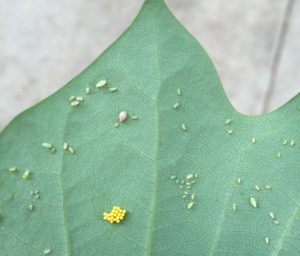
Tulip trees (Liriodendron tulipifera) have two primary pests both of which produce honeydew and both of which are actively …

Crape Myrtle Bark Scale (CMBS), Acanthococcus lagerstroemiae, is an exotic insect pest that feeds only …
New and current grape growers will find practical information on site appraisal, establishment, and operation …
Grapes grown in North Carolina are sometimes exposed to unfavorable climatic conditions and biological pests …

This factsheet discusses symptoms and control of several leaf diseases common in North Carolina blueberry …

This factsheet describes the biology of the cane lace bug or bamboo lace bug, Leptodictya …

This factsheet describes the biology of the banded sphinx moth or lesser vine sphinx, Eumorpha …

This factsheet describes the biology of the elm-grass root aphid, Tetraneura ulmi, and provides residential …
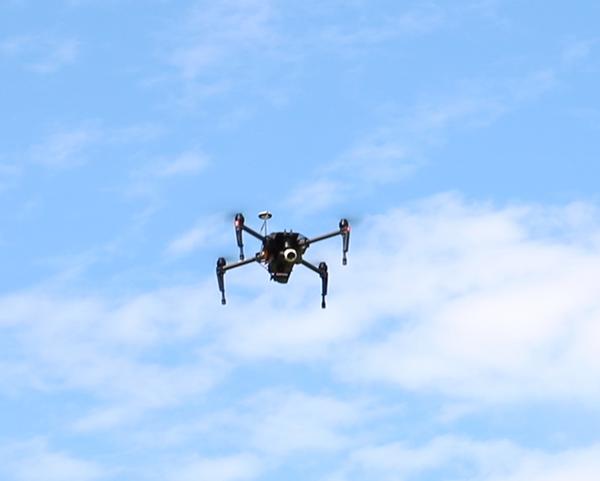
This publication discusses flying unmanned aerial vehicles (drones, model aircraft) for commercial purposes. You'll learn …